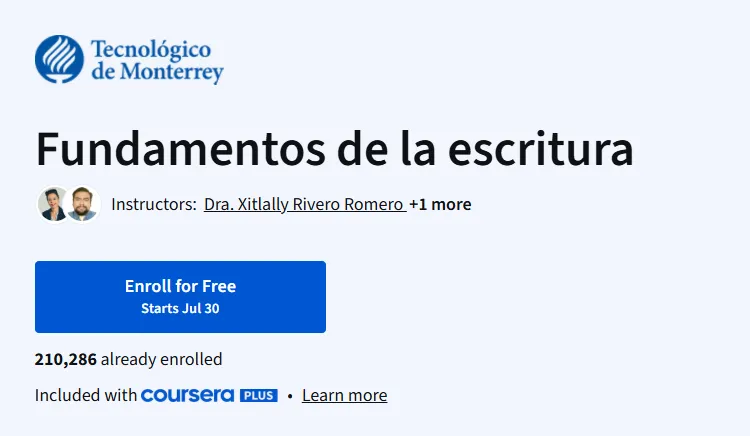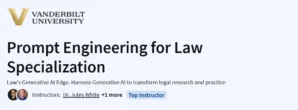What will you learn in Fundamentos de la escritura Course
Understand the characteristics and structure of scientific texts.
Apply writing strategies for clarity, coherence, and academic rigor.
Recognize common writing errors and how to avoid them in scientific communication.
Improve your ability to express scientific ideas in Spanish with precision and formality.
Program Overview
Module 1: El proceso de escritura científica
⏱️ 1 week
Topics: Nature of scientific writing, drafting process, audience analysis.
Hands-on: Writing an introduction to a scientific topic.
Module 2: Propiedades de la escritura científica
⏱️ 1 week
Topics: Clarity, coherence, conciseness, and cohesion in texts.
Hands-on: Editing for clarity and eliminating redundancies.
Module 3: Estructura del artículo científico
⏱️ 1 week
Topics: IMRyD structure (Introduction, Methods, Results, Discussion).
Hands-on: Outline and write each section of a scientific article.
Module 4: Recursos de lenguaje y estilo
⏱️ 1 week
Topics: Formal tone, use of connectors, common errors in scientific Spanish.
Hands-on: Revise and enhance a sample scientific paragraph.
Get certificate
Job Outlook
Scientific writing is an essential skill in academia, research, and technical professions.
Beneficial for researchers, students, and professionals needing to publish or communicate scientific information.
Growing demand in editorial, publishing, and science communication roles.
Supports academic and research career advancement, particularly in Spanish-speaking contexts.
Specification: Fundamentos de la escritura
|
FAQs
- Teaches clarity, coherence, and conciseness useful for professional reports.
- Helps structure information logically for technical documentation.
- Supports formal tone and precise expression suitable for business contexts.
- Provides strategies for avoiding common writing errors in professional settings.
- Enhances ability to communicate complex ideas clearly to colleagues or clients.
- Core writing principles (structure, clarity, coherence) are universal.
- Techniques for editing and organizing content can be adapted to other languages.
- Formal tone and scientific writing strategies remain relevant across languages.
- Supports translating ideas into clear, structured sentences in any language.
- Encourages understanding of audience, a key skill for multilingual writing.
- Focuses primarily on writing structure and clarity rather than citation rules.
- Encourages consistent attribution of ideas but does not teach all referencing styles.
- Supports learners in preparing content that can later incorporate formal references.
- Provides a foundation for understanding proper source acknowledgment.
- Reinforces clarity and coherence which aids proper integration of citations.
- Designed for beginners with clear, step-by-step guidance.
- Introduces the writing process gradually, from drafting to revising.
- Provides practical exercises to build confidence in writing.
- Explains common mistakes and how to avoid them in a beginner-friendly way.
- Prepares learners to tackle scientific writing without prior background.
- Emphasizes clarity, structure, and coherence, useful in any writing genre.
- Techniques for editing and refining text can enhance creative work.
- Focus on audience understanding improves communication in storytelling.
- Reinforces logical flow and organization applicable to essays or articles.
- Builds foundational skills that can be adapted for professional or literary writing.





